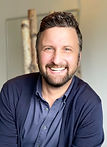_edited.png)
Strengths coaching to supercharge your social wellbeing
You've probably read the articles and seen the evidence. Loneliness can impact our careers and relationships, as well as our mental, physical and emotional health.
It can have steep social and economic costs for communities, organisations and individuals.
Humans are built for connection, and social wellbeing is crucial to our overall health and happiness.
Perhaps you've experienced loneliness yourself.
Believe it or not,
that's great news.

The ache of loneliness is evidence of our great social capacity.
As unpleasant as the feeling is, it's a gift of awareness and a call to action.
At our best, we're making small choices every day to take care of our social wellbeing. We're each using our unique combination of powerful social strengths to create lives that are deeply purposeful and rich in belonging.
When we're not at our best, we have the chance to choose what we do with our incredible potential for care, connection and collaboration.
Will you make the most of it?
Let me guide and support you as you:
* Learn to savour both company and solitude.
* Dismantle a shame or blame-based mindset.
* Build a pro-social home, workplace or community.
* Manage feelings associated with loss or loneliness.
* Choose to nurture real-life relationships over parasocial ones.
* Navigate the modern dating scene or create a vibrant single life.
* Enhance your communication and consent skills for better intimacy.
* Use your unique strengths to live and connect more intentionally.
While my work focuses primarily on individuals, I can also consult with organisations to provide thought partnership or facilitate workshops and training around social wellbeing.
This work aligns most closely with Sustainable Development Goal 3, as loneliness is classified as a public health risk. In a less direct way, my work also serves Goals 5, 8 and 11.
I'm a qualified humanistic strengths coach. I work with people who want to overcome loneliness or improve their overall social wellbeing.
Who might experience loneliness?





Almost anyone.
Loneliness is a subjective, negative feeling that occurs when there's a deficit between the level of connection we need and the level of connection we currently have.
Loneliness is a perfectly natural human response to this deficit.





People have many different ways of experiencing or expressing low social wellbeing. There can be a stigma around loneliness, so we might try to suppress or deny it. Feelings of loneliness or social isolation might mimic (or accompany) burnout or compulsive behaviours, making them harder to identify.
If you're experiencing loneliness, that's not your fault, but it is your responsibility.
YOU have the power to claim agency over your social wellbeing and to effect change in your own life.
However, as powerful as we are, we all need support sometimes. If you'd like to learn more about how my strengths-based approach can help you supercharge your social wellbeing, book a free online consultation.
